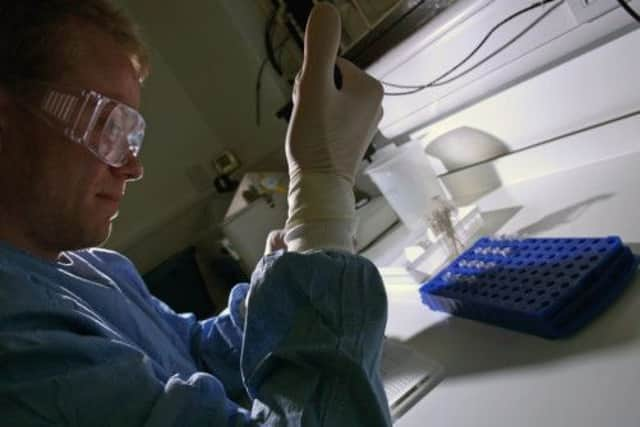Glaxo accused of ‘pay-to-delay’ deal


The Office of Fair Trading (OFT) is alleging that Glaxo offered “substantial” payments to Alpharma, Generics and Norton Healthcare to hold off from supplying rival medicines to its blockbuster Seroxat antidepressant, in a move that denied the NHS “significant” cost savings.
Britain’s biggest drug maker said it believed it had acted lawfully. But if it is found to have broken the law, it could be fined up to 10 per cent of its worldwide turnover, which amounted to £26.4bn last year.
Advertisement
Hide AdAdvertisement
Hide AdThe alleged actions by all the firms involved are a potential infringement of competition law, while Glaxo is also accused of abusing its dominant position in the market.
Ann Pope, senior director of services, infrastructure and public markets at the OFT, said: “The introduction of generic medicines can lead to strong competition on price, which can drive savings for the NHS, to the benefit of patients and, ultimately, taxpayers. It is therefore particularly important that the OFT fully investigates concerns that independent generic entry may have been delayed in this case.”
The OFT said the firms will now be asked to respond to its allegations before deciding if competition law has been infringed.
Glaxo said it will “carefully review” the allegations before considering any further action.
A spokesman for the FTSE 100 firm said: “We very strongly believe that we acted within the law, as the holder of valid patents for paroxetine, in entering the agreements under investigation.”
It added that the agreements with competitors – put in place throughout 2001 to 2004 – resulted in generic versions of Seroxat coming on to the market before its patent ran out in 2004.
The group also claimed these allegations had already been investigated by the European Commission (EC), with no action taken.
But the OFT stressed previous EC inquiries related to completely separate matters.
Advertisement
Hide AdAdvertisement
Hide AdBrentford-based Glaxo has been embroiled in controversy before over its Seroxat treatment.
The firm was fined $3bn (£2bn) last summer in the biggest healthcare fraud in US history after it admitted paying medics to prescribe the drug for children, although it was not intended for under 18s, while it also pushed its Wellbutrin drug for uses for which it was not approved. The allegations being investigated by the OFT pre-date those matters.
Mike van Dulken, head of research at Accendo Markets, said patent expiry of blockbuster drugs is already a big issue for major pharmaceuticals firms, and dented profitability last year.
He estimates that Seroxat accounted for about 1.9 per cent of Glaxo’s 2012 sales.
He said: “The news has taken a shine off Glaxo shares which made a major breakout to 1,700p earlier this week, a level last seen 11 years ago.”